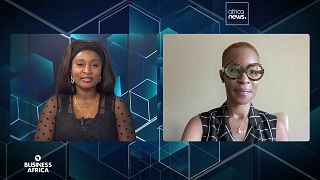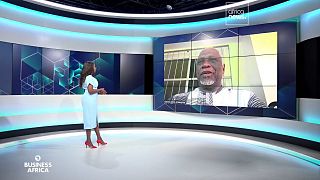Business Africa
Uptick in liquidity in an election year, while traders decry low sales. What’s the cost on the economy post- Ghana’s 2020 elections? Our Ghanaian correspondent Peter Quao Adattor tells about the optimism of Ghana's finance minister, Ken Ofori Atta.
Meanwhile, Founding President of Accra-based Imani Center for Policy and Education speaks to our Ignatius Annor on why the global pandemic cannot explain away the mounting debts incurred by managers of the economy.
Franklin Cudjoe said ''It has to be explained away by government’s unnecessary spending, which means that they are attracting debt as well as a result of that. So clearly speaking, the debt situation is going to grow. I'm sure if the government had its way, it would still borrow more. Already it is borrowing a lot. It’s borrowed close to one hundred and fifty billion Ghana cedis (26 billion dollars) in three years. That's a lot of money. And the only reason why we can sustain our debt is when we start doing things sensibly. So it behooves on us to rein in expenditure. As I said, eight percent out of the nearly 15, 16 percent fiscal deficit is caused by unnecessary expenditure, and that cannot be salvaged by any debt sustainability plan. Because there’s no debt sustainability plan.''
A massive boost in revenue for operators of Point of sale devices in Nigeria. We visit Africa's most populous nation, where our correspondent, Michael Dibie reports about why some stakeholders are unhappy.
And Uganda inches closer to begin oil pipeline construction, as it validates an environmental-impact assessment.





![Oligui Nguema: A breakthrough or continuity for Gabon? [Business Africa]](https://static.euronews.com/articles/stories/09/18/37/26/320x180_cmsv2_0ddbed7e-31aa-5396-921a-e042c3fc82f0-9183726.jpg)







Go to video
Sub-Saharan Africa’s economy set to rebound, but Jobs still a major hurdle
01:16
Africa mourns Pope Francis, a voice for peace and justice
01:14
ECOWAS Meets in Ghana to Tackle Member Withdrawals
Go to video
Egypt's revenue from the Suez Canal plunged sharply in 2024
00:58
Senegal: MP Proposes High Treason Charges Against Former President Macky Sall
Go to video
At China's largest trade fair, businesses brace for impact of trade war with US